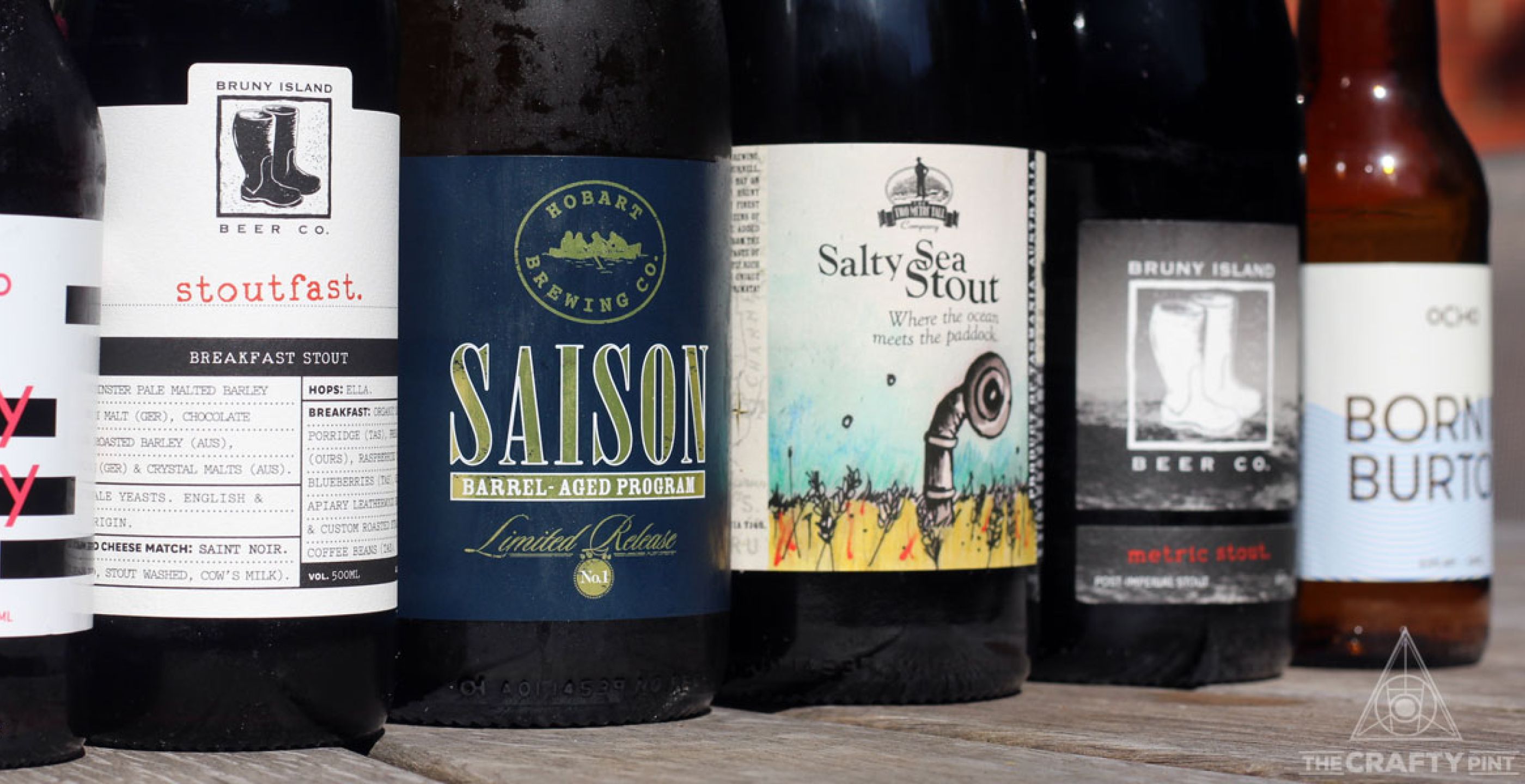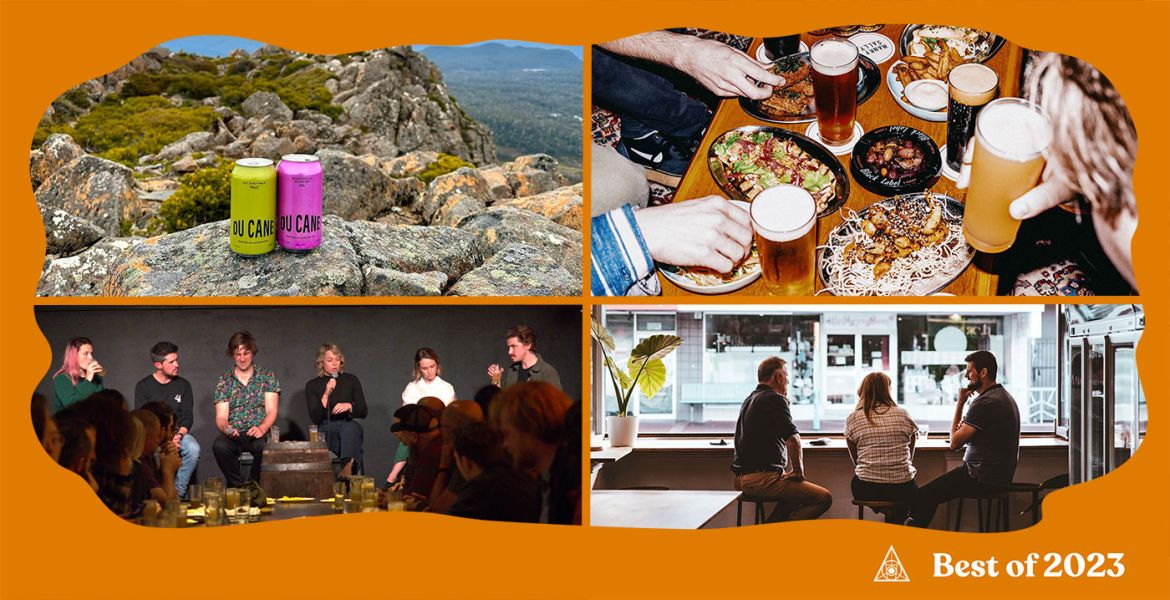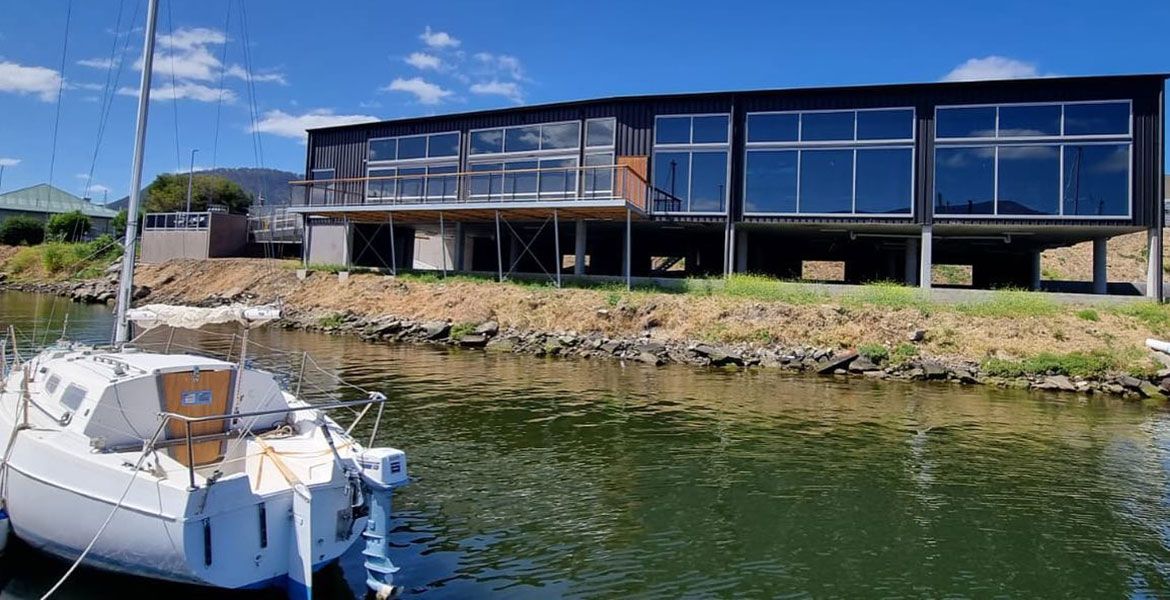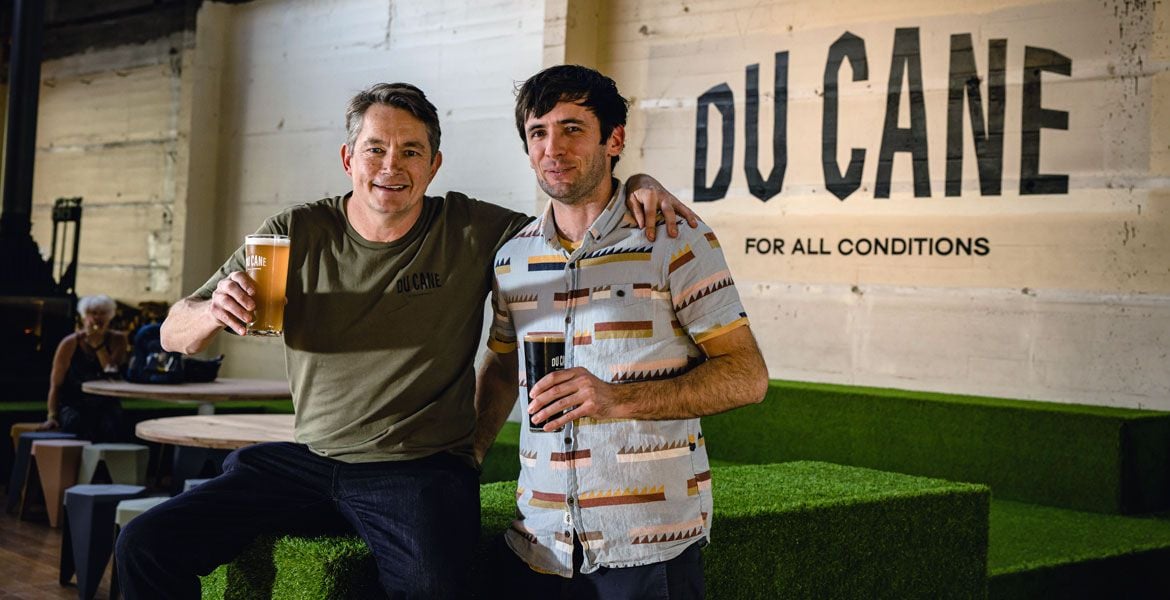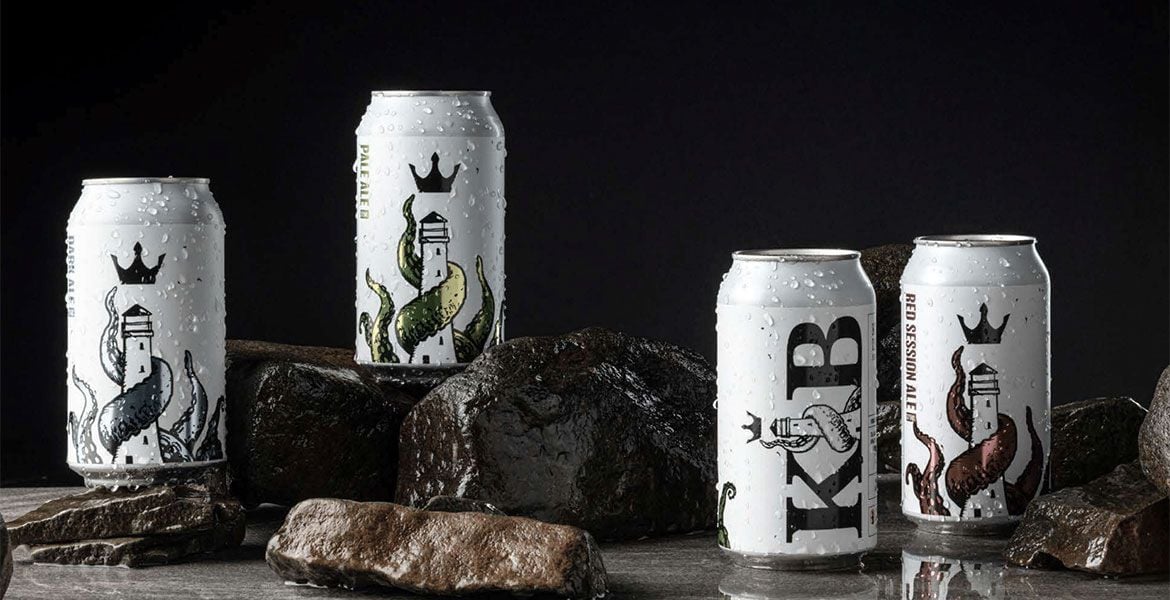Bass Strait has long been the enemy of anyone trying make their way between Tasmania and the rest of Australia. Since the colonisation of Australia began, the treacherous (though narrow) stretch of water has taken out hundreds of ships, many of which have disappeared without a trace.
Today, the Strait isn’t such a concern for seafarers and even the roughest nights traversing it can typically be overcome by anti-nausea medication. For craft breweries, however, it has remained something of a barrier to getting their beer onto the mainland. While larger operations like Moo Brew have had a national presence for some time, many mainlanders still only get to drink beer from Tasmania’s smaller producers when they make it to the actual island or at special beer week events, such as Pint of Origin.
It’s a challenge Saint John’s Distribution hopes to overcome. Started by the team behind Saint John Craft Beer in Launceston and Empress Craft Beer in Devonport, which has been bringing a number of breweries' beers the other way for years, the portfolio of Tasmanian brewers at launch includes Morrison Brewery, Hobart Brewing Co and Bruny Island Beer Co.
The man overseeing the incursion into Victoria and beyond is expat Tasmanian Jade Burley.
“For a lot of these small guys, the only time this stock does come across is when you have a really keen retailer that wants to get a fair bit of Tassie stuff at once,” he says.
“We can actually consolidate pallets between all those breweries so we can bring over a smaller number of cases [from each individual brewery] and keep the stock moving and keep it fresh.”
Saint John will be using cold-chain transport the entire way, hoping the beer reaches the mainland in the same condition it leaves the island.
“Bass Strait can be a massive obstacle but, because there is so much fresh produce that comes out of Tassie, there’s a few really established cold-chain specialists,” Jade says. “We come from our own refrigerated warehouse in Launceston, the stuff we hold in Victoria is cold stored, and we used cold freight in between.”
Launceston’s family-run Morrison Brewery is among the first breweries drinkers will start to see more regularly in Victoria. Brewery co-owner and head brewer Paul Morrison (pictured below) says, while he has sent beer across Bass Strait before, it’s no easy feat for a small business.
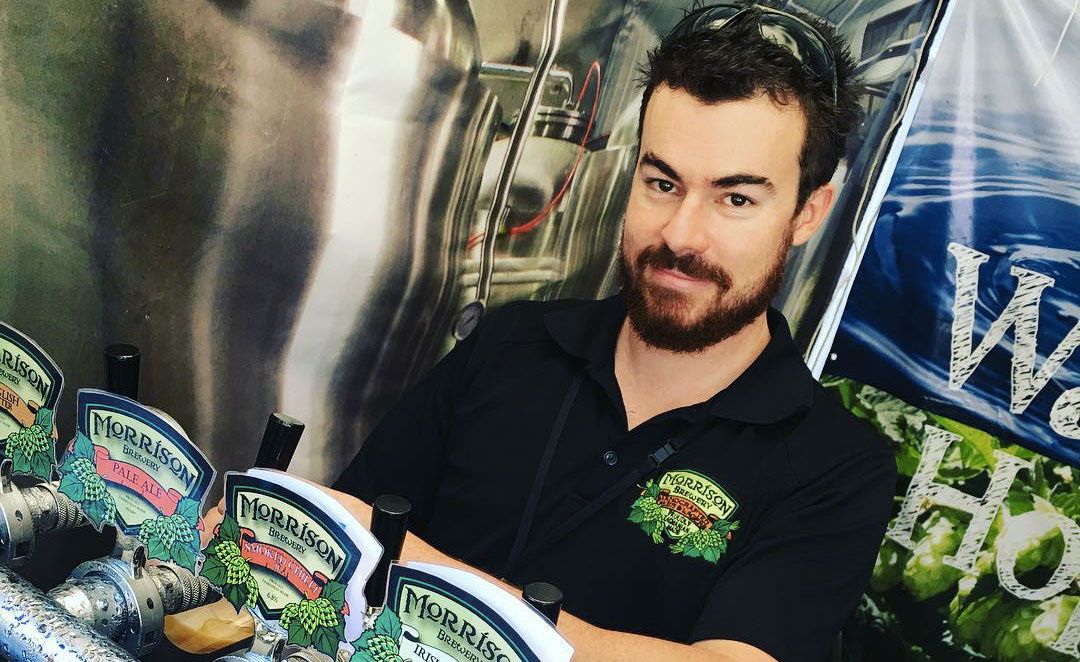
“[Melbourne’s] a very competitive market, so having someone on the ground with knowledge of our products and years of industry experience will make all the difference,” Paul says.
“Freight across Bass Strait is very expensive; to make it cost effective a full pallet needs to be sent, which can be hard to move quickly without a sales team on the ground – there's only so much you can do over the phone.”
Paul also feels getting more of their beer onto the mainland – including limited releases – should help Morrison’s Tasmanian sales by boosting the awareness tourists have of the brewery.
One Tasmanian brewer that has been distributing beer widely throughout Australia, and indeed globally, for many years is Two Metre Tall. For the most part, distribution is still handled by the brewery's two founders, Ashley and Jane Huntington, with "help in the complicated world of restaurants".
For them, the tyranny of distance hasn't been the challenge so much as "changing the marketplace to accept what we do", with a number of distributors coming and going over the years, as well as the ongoing battle to gain shelf and tap space in an environment dominated by "corporate chain retailers and brewers". And, despite the vehement criticism of the brewery's early years turning to acclaim – they were invited to make a beer-cider hybrid for Noma's Sydney pop-up and their beers are distributed by The Shelton Brothers in the US – it remains a hard slog, one that other Tasmanian brewers have tried and abandoned.
"Going direct, establishing highly personal relationships with the independent trade, goes some way towards achieving some forgiveness for the rocky supply road any customer of ours inevitably encounters," says Ashley of their method – and occasional supply issues.
"It is very hard, very constant work," he adds, "and the almighty grip the market is held in by both the retail chains and the corporate brewers armed with their distribution contracts and aggressive tactics simply adds to the workload ... but it is also our choice to work like this.
"It is very personal, absorbing, three-dimensional, alive, so very satisfying and, most importantly, it is the most direct link to the end customer that we can achieve – which is the consumer of what we make. After all these years, I still get the greatest buzz out of seeing a product I have cajoled and loved all the way from farm-to-bottle being enjoyed."
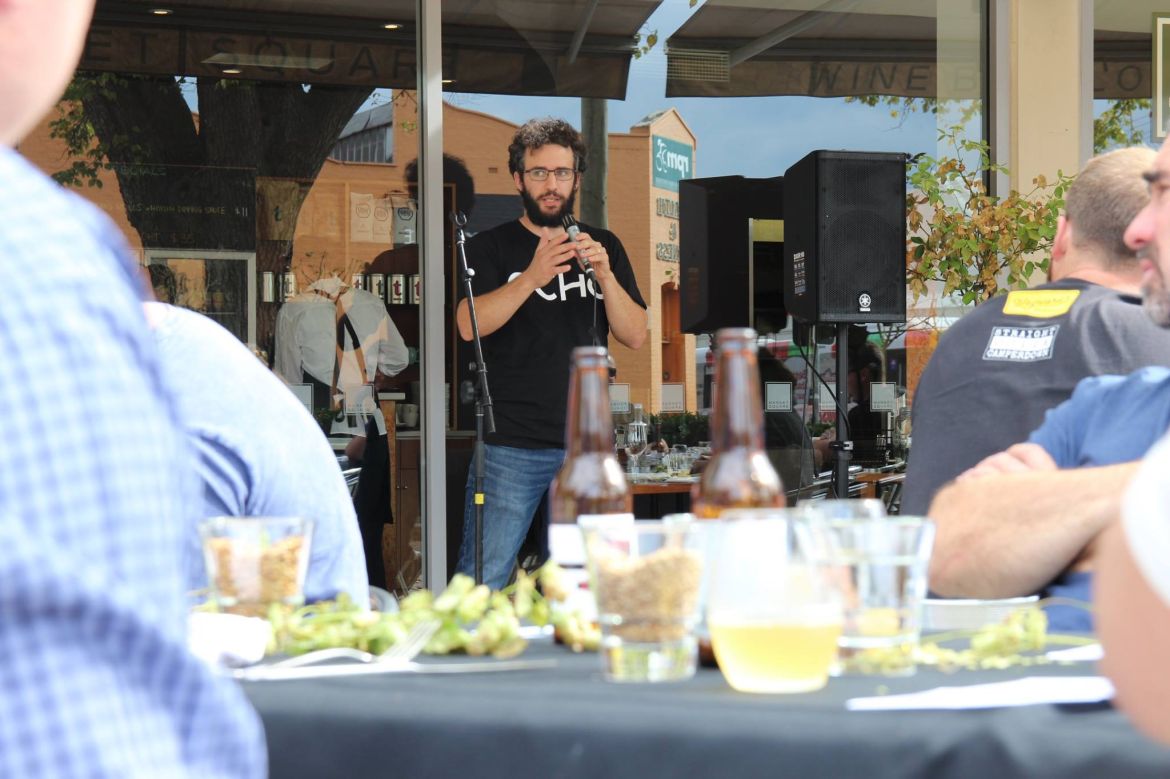
A more recent arrival on the Tasmanian scene is Ocho Beer, an operation that found its own unique way of dealing with end consumers directly, if not actually face-to-face. When Stu Grant launched the brewing company with his brother-in-law Will Rainbird, their focus was on direct-to-customer online sales.
That fact – as well as Stu’s penchant for brewing uncommon beers and delivering them in eye-catching packaging – garnered plenty of interest from states other than Tasmania. Since then, venues and bottleshops have started to stock Ocho as well, something which surprised Stu at first.
“It’s funny, the whole business model is built up around retail,” says Stu. “We’re not producing a whole lot of beer so it’s a much easier way to do things if it’s just direct to the consumer."
Stu says most of his retail sales have been interstate so far (though locals are starting to take more of an interest), a factor which Stu thinks is due to more than just population size.
“I think that’s mostly a reflection of the craft beer movement being a bit more advanced outside of Tasmania,” he says.
“But also, it’s just a population thing – there’s a lot more beer drinkers in general in Melbourne and Sydney and that’s where we’ve had a lot of interest.”
With a population of just over half a million people and close to 30 independent breweries now calling the state home, there is a need for Tasmania's breweries to have better access to other markets, particularly as the number of retailers focused on local craft beer hasn't grown at the same explosive rate as breweries in recent years.
“Even though Victoria is still hugely competitive there’s still a much bigger market place to get product into rather than just keeping it on the island down in Tassie,” Jade says.
Jade adds that, despite the number of Victorian breweries constantly growing, Tasmanian beer still seems able to find its way into the hands of even the most ardent “drink local” supporters.
“It seems like Tassie – and it’s not beer, but Tassie produce overall – seems to slip past the defences a little bit.
“It’s got that image of quality and clean and green and all of that; it all sounds a bit cliché now but it’s still really relevant.”
About the author: Will Ziebell is a history graduate who finds the greatest use for his degree is telling anecdotes to anyone who will listen. Often they involve beer, especially when hosting Melbourne Brewery Tours. He can be found on Instagram and Twitter.
Look out for a listing for Bruny Island Beer Co and its unique beers on Crafty soon.

